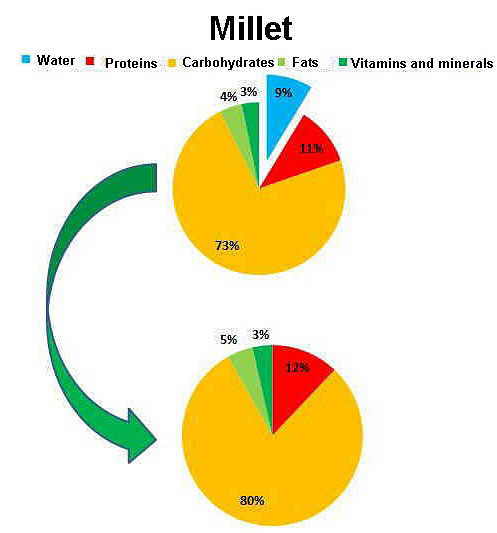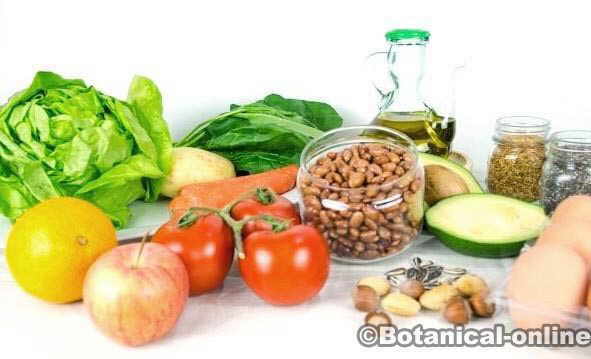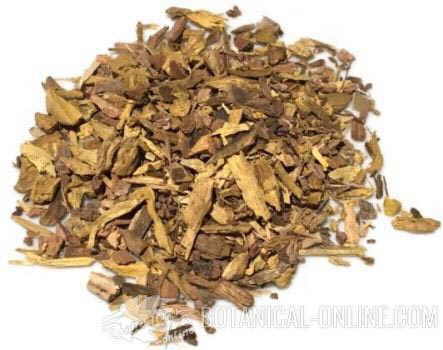Calcium and vitamin D for vegetarians
VEGETARIANISM: PROBLEMS WITH CALCIUM AND VITAMIN D
Any kind of diet, if not done in a balanced, varied way, with an organized structure, which does not contemplate any possible lack of nutrients, can generate inadvertently nutritional deficiencies.
The important nutrients, and, in some cases, the essential ones, if not properly provided, can bring nutritional deficiencies being a risk factor of multitude of problems, disorders and diseases, unnecessary and avoidable with a proper nutrition.
One of the more common shortcomings when you reject the dairy food, is that of calcium. If we do not substitute milk or milk products for others containing calcium, if we do not compensate these products with other food or supplements, we can experience calcium deficiency.
What is calcium so important?
Calcium properties
Calcium is a mineral essential to maintain our skeletal structure strong and resilient, but it is also involved in a multitude of reactions in our body, therefore we should not create deficiencies of this mineral.
If our vegetarian diet does not include any dairy intake, we must be sure that other foods can cover the amount needed. If we do not achieve our calcium needs through our regular diet, there are some calcium fortified foods that can supplement its intake. They will be able to avoid and prevent the onset of diseases associated with a deficit or lack of calcium.
 Sunbathing allows the body to produce vitamin D which helps absorb calcium from food
Sunbathing allows the body to produce vitamin D which helps absorb calcium from foodCalcium deficiency
Hypocalcemia is a state of insufficient calcium in blood. It is usually not very noticeable, unless when very pronounced, since our body tends to balance blood to keep us alive. (We should note that changes in the blood, however small they are, can be decisive between being alive or not.)
To maintain that balance, when there is a shortage of calcium, our body removes it from the storage place, that’s to say, from our bones and carries it to the blood. Hence, we will decalcify ourselves faster if we do not bring the required amount of calcium to repair this shortage. Any possible disequilibrium in blood level is easily detected and calcium is quickly taken from our bones to keep levels steady.
Therefore, it is important to consume foods rich in calcium and meet our nutritional needs related to this mineral. We contribute to it by eating more foods that contain calcium. We must reserve only for special occasions those foods that are rich in phosphorus and low in calcium. Colas, for example, are extremely decalcifying and, therefore, if we suffer hypocalcemia, they are counterproductive.
Is it enough to eat foods rich in calcium?
Scientific studies have linked the onset of osteoporosis with excessive consumption of animal protein, rather than inadequate intake of calcium from our diet.
According to these studies, the factor that upsets the calcium levels in blood and bones (Our calcium stockrooms), are not so much the lack of calcium intake, but a high consumption of animal protein which acidifies our body and decalcifies bones by increasing mass concentrations of phosphorus in our body.
Clearly, if we do not consume enough calcium, we will provoke a softening of the bones, breaking the balance between calcium and phosphorus.
The problem is that, no matter how much much our diet is rich in foods containing lots of calcium, if we eat more foods rich in phosphorus at the same time,, we get a ratio of both minerals that it is not considered calcifying and therefore, besides being counterprodujctive, can cause the onset of the disease called osteoporosis.
A diet richer in calcium
We should note that vegetarians, compared to some people who do not make a vegetarian diet, tend to consume less amounts of protein. In fact, we could say that they consume the appropriate amount of protein, without excess.
Usually, people who do not perform a vegetarian diet tend to overdo the amount of protein they consume. Excess protein involves an excessive intake of phosphorus (among other substances), which produce an acidification of the body and a softening of the bones to counteract calcium.
A possible decrease of excess of protein intake reduces acidification, tending to make our body more alkaline. Furthermore, if we consider that sodium intake is also usually lower, and if we add the high amount of potassium the plant foods usually have, plant food ingestion still further decreases sodium levels.
So, if we consider all these factors together, the amount of calcium that is required is not very high, since the factors that reduce its absorption are also smaller. Whereupon, although intake is made of this mineral is somewhat lower than when eating animal food, it may be correct.
How to take calcium?
It is recommended not to consume calcium-rich foods together with foods rich in iron, as doing this will reduce the absorption of both minerals.
Another interesting option before considering supplementation of calcium is to eat foods fortified with this mineral, and preferably in conjunction with foods rich in vitamin D, which will further enhance calcium uptake. An example may be a vegetable soy drink fortified with calcium and vitamin D.
Those people who fail to meet the needs of calcium by normal diet can use calcium supplements. Although we must remember that nutrients are absorbed better if consumed directly forming part of the food.
Vitamin D and calcium
Since vitamin D helps in better absorption of calcium, it is recommended, even if not suffering from hypocalcemia, as a preventive measure, to sunbathe about 10 or 15 minutes a day. By doing this, our body can generate significant amounts of vitamin D which will help calcium absorption.
Vitamin D problems in vegetarians
Vitamin D is difficult to acquire when following a strict vegetarian or vegan diet, since this vitamin is mainly found naturally in animal and fish food and fish oils. There are some plant foods, which, although not naturally, contain it because they are enriched with this vitamin. These are called fortified foods.
Luckily, vitamin D deficiency is not very common, since, although we do not consume foods rich in it, our body can synthesize it from the sun, if we get in contact with it about 15 minutes per day. However, one should keep in mind that there are at least two non-modifiable factors that can adversely affect the ability to synthesize vitamin D through sunbathing.
The first is that the darker your skin is, the longer sun exposure will be required, because it is more difficult for dark skins to absorb the rays and therefore to make vitamin D. The second depends on the climate of the area and the season we are, and therefore, the number of hours of sunshine at our disposal throughout the day. The shorter the period of sunshine is, the harder to have the time to take it.
In any case, there is another way to get it, if you can not sunbathe for a set period of time each day. You can take vitamin D-fortified foods or vitamin D supplements in order to avoid Vitamin D deficiency, or, because of it, calcium deficiency.
![]() More information on problems in vegetarianism.
More information on problems in vegetarianism.








